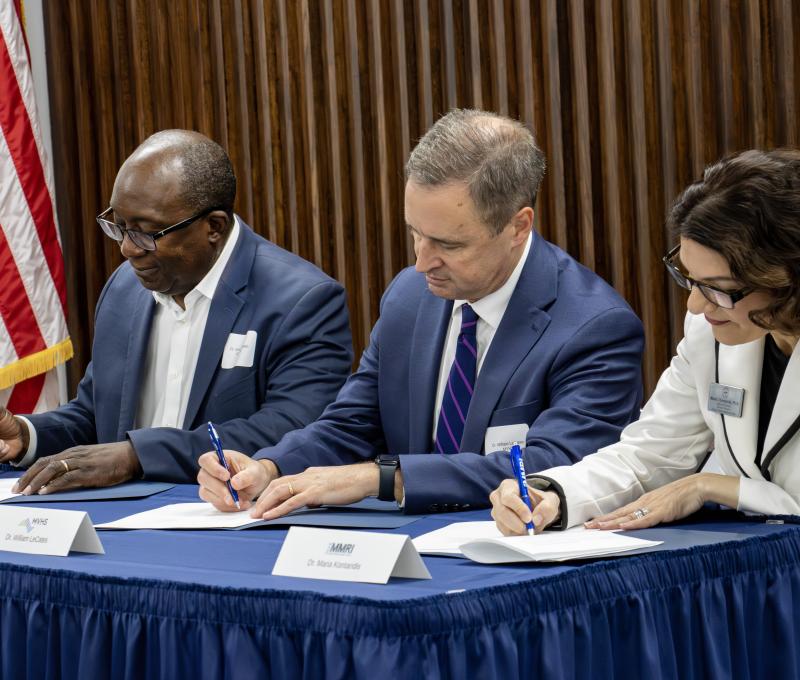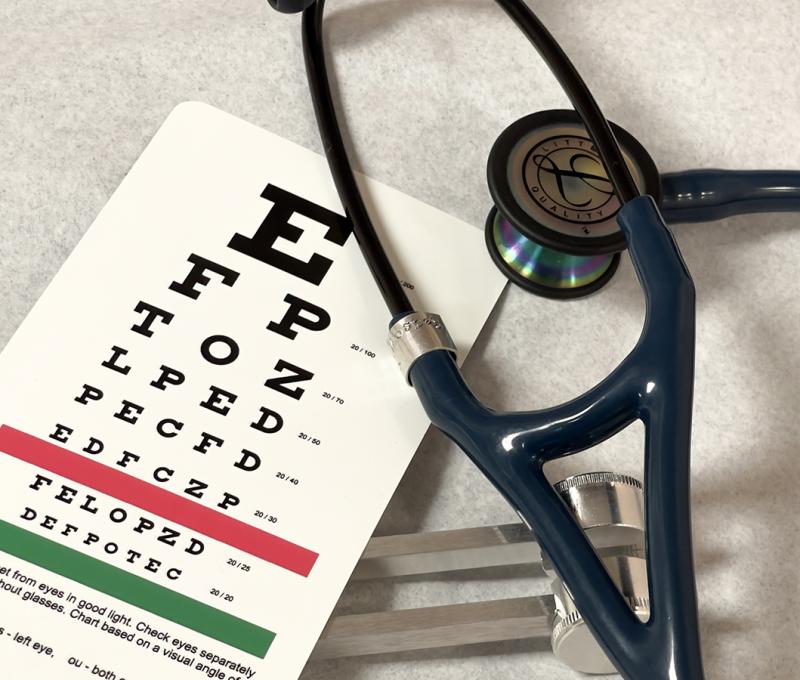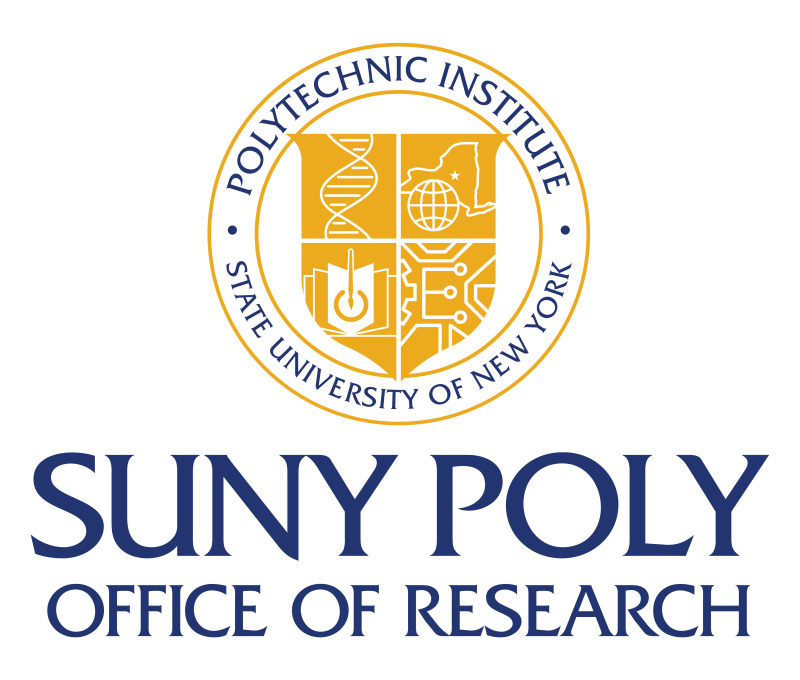News Release: SUNY Poly Research Team Awarded $270K from the Semiconductor Research Corporation to Optimize Computer Chip Production Processes

For Release: Immediate – November 22, 2021
Contact: Steve Ference, Director of University Communications | (518) 429-7742 | sference@sunypoly.edu
ALBANY – SUNY Polytechnic Institute (SUNY Poly) announced today it received an award from the Semiconductor Research Corporation (SRC) Nanomanufacturing Materials and Processes (NMP) to fund research led by SUNY Poly TEL Innovation Scientist Dr. Christophe Vallée, with Associate Professor of Nanoengineering Dr. Gregory Denbeaux, along with several students, who plan to detail a more time and cost effective process for the computer chip deposition process, in which material will be selectively deposited in the most optimized manner during the photolithography process, used to create computer chips layer by layer. Selective deposition can help address uniformity concerns as computer chips shrink in size to increase their performance.
One Ph.D. student and one undergraduate student will work with Drs. Vallée and Denbeaux to further develop a more bottom-up approach to the photolithography process, in which light-sensitive photoresists are deposited on computer chip materials and then exposed to light, allowing unwanted material to be etched away and the desired computer chip architecture to remain.
“We are grateful to the SRC NMP for this grant which will not only advance the computer chip deposition process and increase our knowledge about the ways in which we can better understand the processes’ resultant defects and roughness, but also support both one Ph.D. and one undergraduate SUNY Poly student,” said Dr. Vallée. “As we establish this new set of Area Selective Deposition processes, we look forward to it being implemented by the semiconductor industry, including partner TEL Technology Center, America, LLC, for advanced nodes with smaller features using high NA EUV resists.”
“I am thankful the SRC NMP has provided this award to our research team, which also includes a number of our graduate and undergraduate students who can gain unique, immersive research experience as we address current challenges related to the deposition process at smaller nodes,” said Dr. Denbeaux. “By outlining processes that can lead to material being more selectively deposited, along with the use of more uniform photoresists, we can help industry partners facilitate the downscaling of next-generation semiconductor devices.”
More specifically, this project will seek to provide benefits to SRC member companies, helping them to understand the processes that can be tuned to smooth and reduce uniformity problems, with the objective of developing area selective deposition on ultra-thin extreme ultraviolet lithography (EUV) resists while, at the same time, working to ensure that the desired patterned features on the fabricated computer chips are not “smoothed away.” The team, which will also leverage the expertise of Empire Innovation Professor of Nanoscale Science Dr. Alain Diebold, Associate Professor of Nanoscience Dr. Carl Ventrice, and Professor of Nanobioscience Dr. Robert Brainard, plans to provide a fundamental understanding of the reaction mechanisms along with the recipes used to achieve these proposed processes.
Under a previous $250,000 SRC grant, a SUNY Poly team comprised of Drs. Denbeaux and Brainard worked with students Sunny Choi and Belle Antonovich, who have both earned SRC Student Fellowships. With additional graduate and undergraduate students, the team has worked to improve the uniformity of photoresists for enhanced computer chip manufacturing yields, which could help drive down their cost.
This effort also follows the announcement from October 2020 when SUNY Poly selected Dr. Vallée as the first TEL Innovation Scientist at SUNY Poly. Dr. Vallée is utilizing both Tokyo Electron Limited (TEL) equipment and SUNY Poly metrology services to conduct related research over a five-year period.
####################
About SUNY Polytechnic Institute (SUNY Poly)
SUNY Poly is New York’s globally recognized, high-tech educational ecosystem. SUNY Poly offers undergraduate and graduate degrees in the emerging disciplines of nanoscience and nanoengineering, as well as cutting-edge nanobioscience programs at its Albany campus, and undergraduate and graduate degrees in technology, including engineering, cybersecurity, computer science, and the engineering technologies; professional studies, including business, communication, and nursing; and arts and sciences, including natural sciences, mathematics, humanities, and social sciences at its Utica campus; thriving athletic, recreational, and cultural programs, events, and activities complement the campus experience. As the world’s most advanced, university-driven research enterprise, SUNY Poly boasts billions of dollars in high-tech investments and hundreds of corporate partners since its inception. For information visit www.sunypoly.edu.








